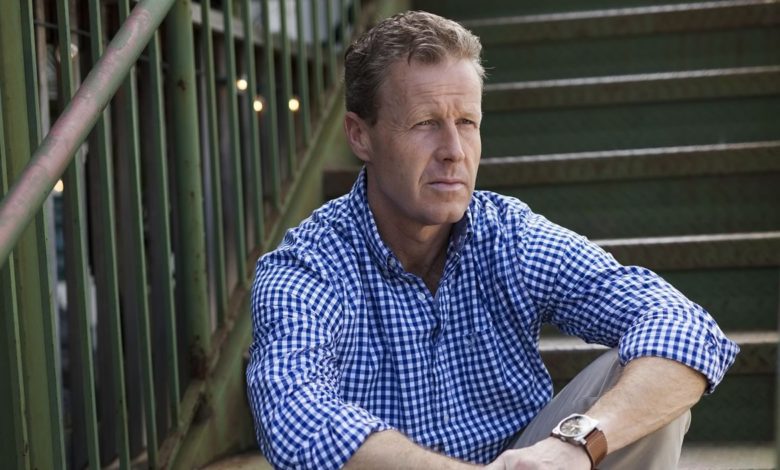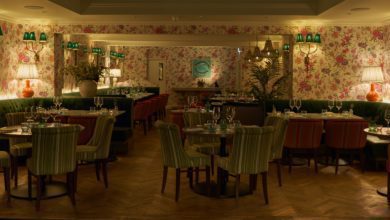Euan McGlashan: ‘There’s not a lot of glamour in luxury hotels’
The CEO of Valor Hospitality, Euan McGlashan, speaks candidly about his career progression and bursts any illusions you might harbour about the glamour present in making luxury hotels tick, whilst exploring what qualities make up a good leader.

When you think of a CEO, what’s the first thing that you picture in your mind? A collage of Rolexes, yachts and tailored suits probably. I was therefore pleasantly surprised when I made Euan McGlashan’s acquaintance over Teams, who wore a simple polo shirt.
A self-professed fan of David Attenborough, one of the things he strives to do in his own work at Valor is leave a legacy for future generations, or at the very least, do his very best to not screw up the environment any further. This mission has grown in importance for McGlashan over the last five to 10 years, as he has pointed out nobody was even talking about sustainability half as seriously 20 years ago as they are now. But this is not where it started for him.
As a bit of background, he grew up in Penicuik (Pennycook), which he describes as a “pretty rough little town” just outside Edinburgh, where he told me there weren’t a lot of career prospects – much less in independent luxury, in which he would go on to carve himself a niche, as you will go on to see.
“I first got a job as an apprentice at a luxury hotel on the borders of Scotland where I literally started in the kitchen, washing and peeling vegetables,” he says.
At that point in his life, he had enrolled himself at a technical college, which he attended two days a week when he wasn’t working at the hotel. At the age of 18, he got accepted into university based on all the work experience he had completed.
“I got into Napier University, where I stayed for four years before embarking on my career, which largely took off after I emigrated to South Africa,” he continues.
He continued to work in luxury hotels, more specifically within F&B, during his time in South Africa from the age of 23. In 1995, he was made group director of F&B. McGlashan was tasked with opening the luxury waterfront hotel of Cape Town, Cape Grace Hotel, when he was around 26 or 27 years old.
“In 2000, we won ‘best hotel in the world’ with Conde Nast Traveler, which was huge. And I was still only 32,” he says. “And then I was headhunted to the US where I had a long career until I started Valor Hospitality in 2012.”
Taking into consideration his background in luxury hotels, you might be fooled into thinking that ‘luxury’ and glamour applies to all facets of the business, but as McGlashan stresses “to anybody who would listen”, it’s a job that demands 365 days a year, around the clock.
“It’s one of the few businesses that never sleeps; you’re dealing in human emotion and serving guests,” he says. “There’s not a lot of glamour in that, but there is a high level of diversity relative to no two days being the same, and it’s actually probably getting more diverse and exciting as every day goes by.”
These days, his role keeps him preoccupied with strategy above everything else. As he recounted, he has to come up with the ways in which Valor will grow and how, as well as how long such endeavours will take – will it be three or five years? Most importantly, he is concerned with leaving a legacy and providing a very strong operating business.
McGlashan is based in five different countries, so he conceded that a lot of his time is spent on planes, travelling the world. “That obviously sounds glamorous”, he said, doing his best to underplay it, because “it’s really not as glamorous as it sounds”. Just think of the jet lag.
Valor operates more than 90 properties in 59 cities spread over five countries. With such a vast estate to maintain, the company employs approximately 7,000 Hotelitarians – McGlashan’s preferred term for all who are involved in the daily running of the company.
The name, it seems to me, comes from a place of total camaraderie and respect, as McGlashan professed himself to be “obsessed with culture and employee engagement”, and so views himself as just one of the team.
However, to keep the business ticking along, he has to dedicate a vast chunk of his time to working with individual partners and leaders, as well as working on Valor’s ESG standards. As such, one thing he wishes he could do more of is spend more time in the hotels with his team.
“As we get bigger, that just becomes increasingly difficult, but I do try to get around as many of them as I can. I am a very hands-on CEO, which I think is important for the culture of the company,” he says.
McGlashan, as many industry leaders, believes that hospitality is arguably in one of its biggest staffing crises. Despite doing everything in Valor’s power to hold on to Hotelitarians, such as launching ‘future leaders’ programs and growing its talent from within, he has noticed that younger generations that are currently graduating from universities do not think about hospitality as a career prospect in the same ways that his age group did.
“Arguably, now is the most exciting time to be in hospitality,” he also says, “but if you think about how business has changed through the advent of technology, that has also made sales and marketing more exciting than it’s ever been. PR is more exciting.”
He was not shy to plainly say that everybody works to earn money, it’s not out of charity or the goodness of their own hearts that companies have employees (or Hotelitarians) to start with. “I see so many businesses or other hotels treat their staff really insincerely,” he noted, “and by doing that you take a colossal risk that they’ll do the same thing to the guests or to you.”
With so much to do and so much to juggle at the same time, McGlashan says that the qualities that have best served him in his role as CEO have been emotional intelligence, as well as the ability to be both a mentor to your team and a friend. Besides that, being able to keep yourself motivated when there are no other people to delegate to you and inform you of your priorities for the day is another skill.
He says, “When you get up in the morning, it is you that has to give yourself your own shine and go out and do it again and again, because your teams are looking for you to lead and inspire them.”









